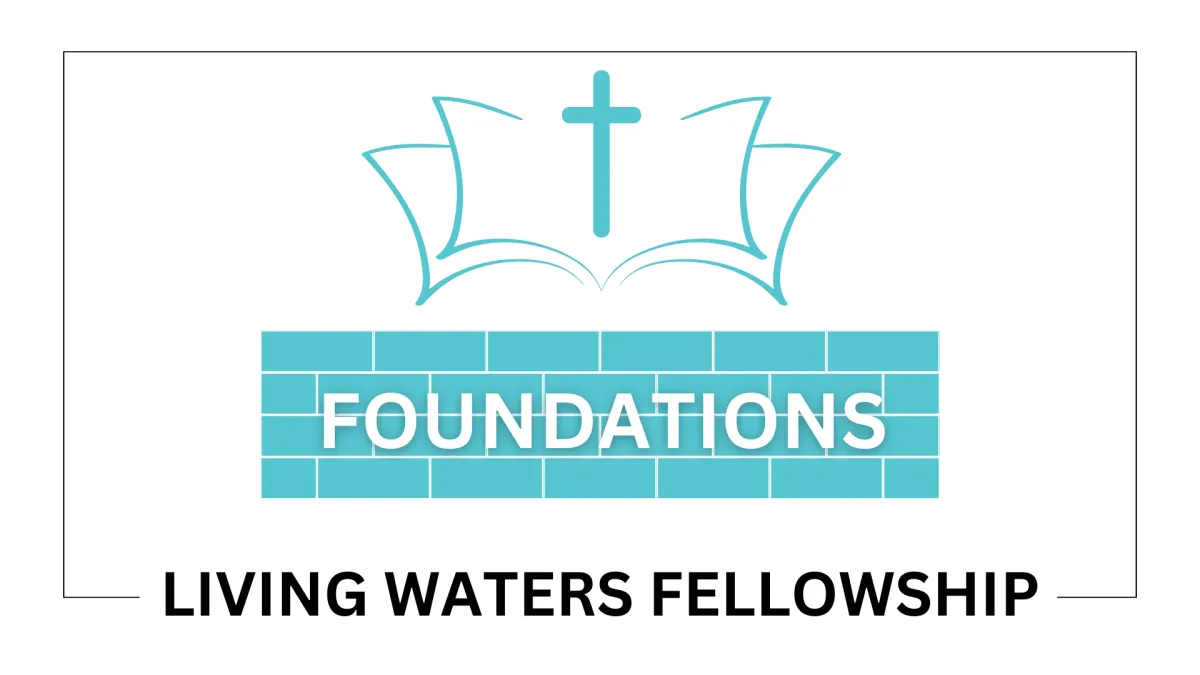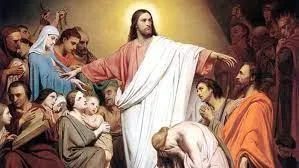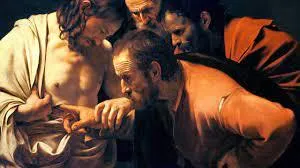I. Introduction to Christian Faith
i. Overview of the statement of faith
ii. What is biblical faith?
iii. The importance of faith in the Christian life
II. The Authority of the Bible
i. The inspiration and inerrancy of Scripture
ii. The role of the Bible in Christian faith and practice
iii. Principles of biblical interpretation
III. The Tri-unity of the Godhead
i. The nature of God as three-in-one
ii. The Father, Son, and Holy Spirit in Scripture
iii. Implications of the Trinity for faith and practice
IV. Creation, Fall, and Redemption
i. The biblical account of creation, fall, and redemption
ii. The sinfulness of humanity and our need for a savior
iii. The work of Christ on the cross and our salvation
V. The Person and Work of Jesus Christ
i. The deity and humanity of Christ
ii. The virgin birth and the life of Christ
iii. The death, burial, and resurrection of Christ
VI. The Gospel of the Grace of God
i. The message of the gospel
ii. The importance of the death, burial, and resurrection
iii. The implications of the gospel for our lives
VII. The Salvation of Sinners
VIII. The Second Coming of Christ
i. Christ's bodily ascension and heavenly enthronement
ii. The second coming and the resurrection of the dead
iii. The implications of the second coming of Christ
X. Pursuing Personal Holiness
i. The importance of personal holiness
ii. The role of discipline and self-control
iii. Sexual immorality and the honor of marriage
i. The nature of salvation
ii. The role of faith in salvation
iii. The assurance of salvation
VII. The Salvation of Sinners
i. The nature of salvation
ii. The role of faith in salvation
iii. The assurance of salvation
IX. Baptism and the Holy Spirit
i. The importance of water baptism by immersion
ii. The baptism of the Holy Spirit and tongues
iii. The gifts of the Spirit and their role in the church
XI. Divine Healing and the Lord's Supper
i. The nature of divine healing
ii. The prayer of faith
iii. The importance of the Lord's Supper for believers
XII. Eternal Life and Eternal Punishment
i. The reality of eternal life for believers
ii. The reality of eternal punishment for unbelievers
iii. The implications of eternal life and eternal punishment for Christian faith and practice




V. The Person and Work of Jesus Christ
4.The Savior of men, the Lord Jesus Christ, conceived of the Holy Spirit, born of the Virgin Mary, Very God and very man (Luke 1:30-35, John 1:18, Isaiah 9:6).
Living Waters Fellowship FCA Statement of Faith

i. The Deity and Humanity of Christ
The Bible presents Jesus Christ as both fully divine and fully human. This concept is known as the hypostatic union. The meaning of hypostatic union is much easier than the term sounds, but the concept is as profound as anything in theology. Our English adjective hypostatic comes from the Greek word hypostasis. The word only appears four times in the New Testament.
Deity of Christ
John 1:1,14: "In the beginning was the Word, and the Word was with God, and the Word was God... And the Word became flesh and dwelt among us, and we have seen his glory, glory as of the only Son from the Father, full of grace and truth."
Colossians 1:15-20: "He is the image of the invisible God, the firstborn of all creation. For by him all things were created, in heaven and on earth, visible and invisible, whether thrones or dominions or rulers or authorities—all things were created through him and for him. And he is before all things, and in him all things hold together. And he is the head of the body, the church. He is the beginning, the firstborn from the dead, that in everything he might be preeminent. For in him all the fullness of God was pleased to dwell, and through him to reconcile to himself all things, whether on earth or in heaven, making peace by the blood of his cross."
Philippians 2:5-11: "Have this mind among yourselves, which is yours in Christ Jesus, who, though he was in the form of God, did not count equality with God a thing to be grasped, but emptied himself, by taking the form of a servant, being born in the likeness of men. And being found in human form, he humbled himself by becoming obedient to the point of death, even death on a cross. Therefore God has highly exalted him and bestowed on him the name that is above every name, so that at the name of Jesus every knee should bow, in heaven and on earth and under the earth, and every tongue confess that Jesus Christ is Lord, to the glory of God the Father."
Humanity of Christ:
John 1:14: "And the Word became flesh and dwelt among us, and we have seen his glory, glory as of the only Son from the Father, full of grace and truth."
Hebrews 4:15: "For we do not have a high priest who is unable to sympathize with our weaknesses, but one who in every respect has been tempted as we are, yet without sin."
Philippians 2:7-8: "but emptied himself, by taking the form of a servant, being born in the likeness of men. And being found in human form, he humbled himself by becoming obedient to the point of death, even death on a cross."
These and other verses reveal that Jesus is both fully God and fully man, which is essential to understanding his work on the cross and our salvation.

ii. The Virgin Birth and the Life of Christ
The virgin birth of Jesus, which is more accurately labeled the virginal conception of Jesus, teaches that Jesus Christ was born apart from the normal process of procreation, but was supernaturally conceived in the womb of the virgin Mary by the power of the Holy Spirit, and born of her, without sin. Christians regard the doctrine as an integral part of the of our belief in the human and divine natures of Jesus.
The virgin birth and sinless life of Jesus Christ are significant doctrines in the Christian faith. According to the Bible, Jesus was born to the virgin Mary through the power of the Holy Spirit (Matthew 1:18-25, Luke 1:26-38). This miraculous conception is evidence of Jesus' divine nature, as it fulfilled the prophecy in Isaiah 7:14 that the Messiah would be born of a virgin. The virgin birth also ensures that Jesus did not inherit the sin nature of Adam, which all humans are born with (Romans 5:12).
Jesus' sinless life is another essential aspect of his nature as both fully God and fully human. The Bible affirms that Jesus was without sin and lived a life of perfect obedience to God (Hebrews 4:15, 2 Corinthians 5:21). His sinlessness allowed him to be the perfect sacrifice for our sins, as only a perfect and spotless lamb could atone for the sins of the world (1 Peter 1:19).
Jesus' virgin birth and sinless life are essential doctrines because they demonstrate his unique nature as the Son of God and the perfect savior of the world. Only a sinless and divine person could pay the penalty for the sins of humanity and reconcile us with God. As believers in Christ, we are called to follow his example of obedience to God and strive for a life of holiness, with the help of the Holy Spirit (1 Peter 1:14-16, Romans 8:9-11).
The Old Testament Prophets predicted both the virgin birth and sinless life of Jesus Christ. In Isaiah 7:14, the prophet Isaiah wrote, "Therefore the Lord himself will give you a sign: The virgin will conceive and give birth to a son, and will call him Immanuel." This prophecy was fulfilled in the virgin birth of Jesus, and His name Immanuel means "God with us," emphasizing His divine nature.
In Isaiah 53:9, the prophet Isaiah wrote of the coming Messiah, "He had done no violence, nor was any deceit in his mouth." This prophecy was fulfilled in Jesus' sinless life, as He lived a perfect and blameless life, without any deceit or wrongdoing.

iii. The Death, Burial, and Resurrection of Christ
The death, burial, and resurrection of Christ are not only historical facts but also have deep theological and spiritual significance. Jesus' death, burial , and resurrection were all predicted or prophesied in the bible and combined they make up the central pillar of our faith. Here is an outline of the biblical explanation of their significance:
The Death of Christ:
The death of Christ on the cross was the ultimate sacrifice for the forgiveness of sin. As the sinless Son of God, Jesus willingly laid down His life for the salvation of humanity (John 10:17-18). His death was substitutionary, meaning He took upon Himself the punishment that we deserved (Isaiah 53:5-6). Through His death, we can be reconciled to God and have eternal life (Romans 5:8-11).
The Burial of Christ:
The burial of Christ is significant because it confirms His death and His physical body was laid in the tomb. This fulfilled the prophecies in the Old Testament that predicted that the Messiah would be buried (Isaiah 53:9).
The Resurrection of Christ:
The resurrection of Christ is the most important event in the Christian faith. It is the cornerstone of our faith, and without it, our faith would be meaningless (1 Corinthians 15:17). Jesus was raised from the dead on the third day, just as He had predicted (Matthew 16:21). This event demonstrated His power over death and His victory over sin and Satan (Romans 6:4-11). The resurrection also serves as a guarantee of our own resurrection and eternal life with Him (1 Corinthians 15:20-23).
Together, the death, burial, and resurrection of Christ represent the ultimate act of love and grace from God to humanity. Through these events, we can have our sins forgiven, be reconciled to God, and have eternal life. It is through faith in Christ and His finished work on the cross that we can receive salvation and new life (Ephesians 2:8-9).